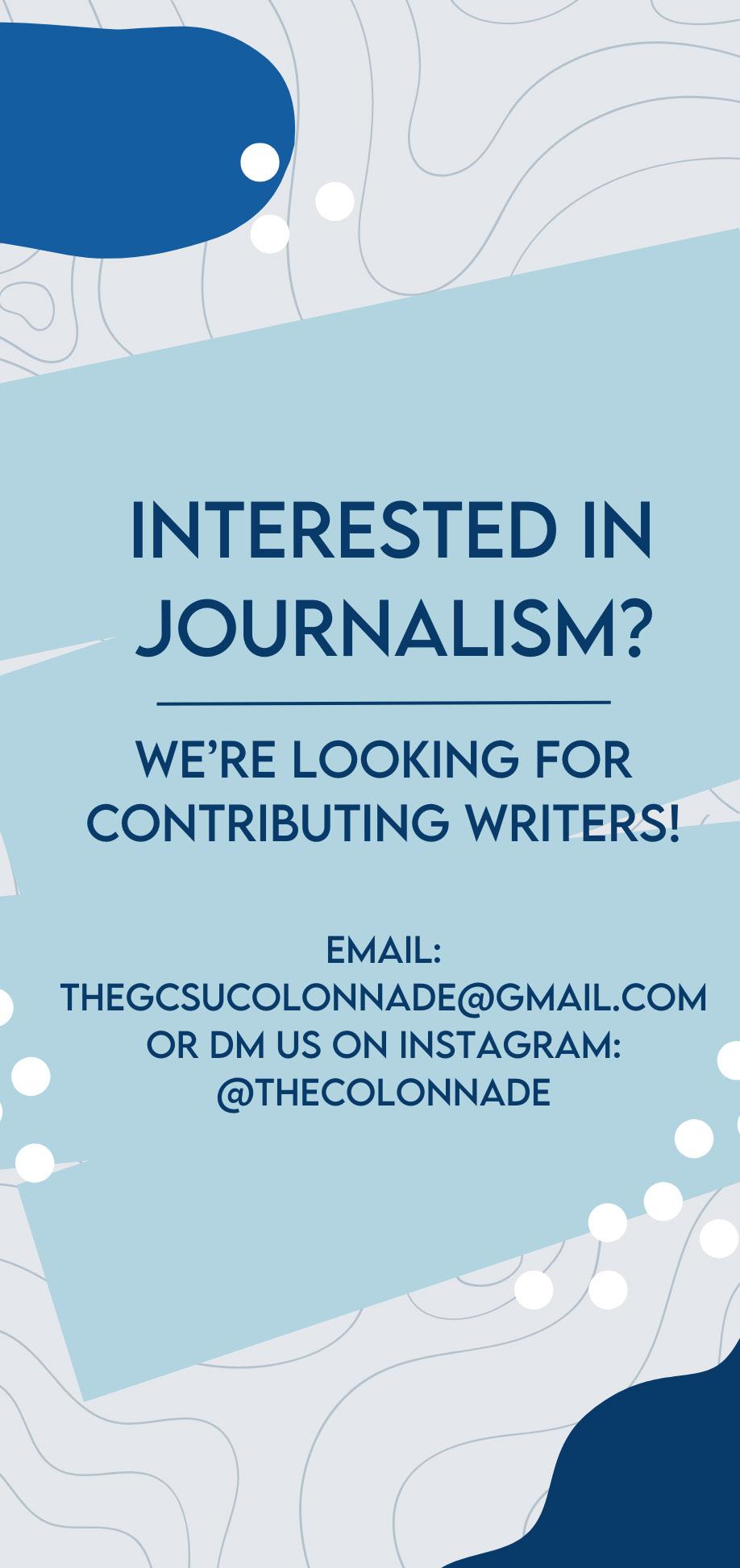






Madi Hummel Staff Writer
The Milly Market started its 2025 season on Friday, April 4, at 4 p.m.
The market is an open-air market, where vendors come from around the Baldwin County and Milledgeville area to sell a variety of homemade goods, produce and other items.
This event will be held every first and third Friday of every month between April and October.
The marketplace is located at the pavilion on 222 E. Hancock St., which is within walking distance of Downtown Milledgeville and the GCSU campus.
With this past Friday being the first Milly Market of the year, many GCSU students and community members attended the event.
Ellen Gunji, a sophomore art major, visited the Milly Market for the first time this Friday.
“It was really cool,” Gunji said. “I got some fig jam and blueberry muffins, which I’m very excited about.”
The market hosts a variety of
Benjamin Clark Asst. Sports Editor
The dust has settled on the Sweet 16 and Elite 8 pairings for the NCAA 2025 March Madness Men’s Tournament. The Final Four is stacked with four one-seed teams, each contending for a championship title. In a high-energy match between two powerhouse schools, Duke outlasted Arizona, piloting an aggressive strategy centered around their
local businesses, which all specialize in different products.
“There were a lot of cool stalls to shop around,” Gunji said. “They had plants, handmade bowls, soaps, candles. and way more. It was hard not to buy everything.”
The Milly Market provides businesses, within Milledgeville and the surrounding areas, a venue to sell and promote their goods.
Brenna Gilbert, a junior nursing major, also experienced the market for the first time on Friday.
“I think it’s a great way to support the community,” Gilbert said. “It’s nice to buy products that you know were made or produced right here in the area.”
“I really enjoyed the market,” Gilbert said. “I will definitely go again.”
For gardeners and people with green thumbs, many of the stalls have live plants for sale.
“We got free mint plants when we got to the market, I thought that was really nice,” Gilbert said, “I’m going to add it to my little plant stand at home.”
See MARKET | Page 8
star offensive players. The Blue Devils’ guards lit up the scoreboard, while Arizona couldn’t keep pace despite a late rally.
Alabama’s offense was well utilized in their game against BYU, putting up a jaw-dropping 113 points. BYU had no answer for the Crimson Tide’s aggressiveness and athleticism, as Alabama stormed into the Elite Eight with passion.
In their Elite 8 match, Duke dominated from the opening tip. Ala-
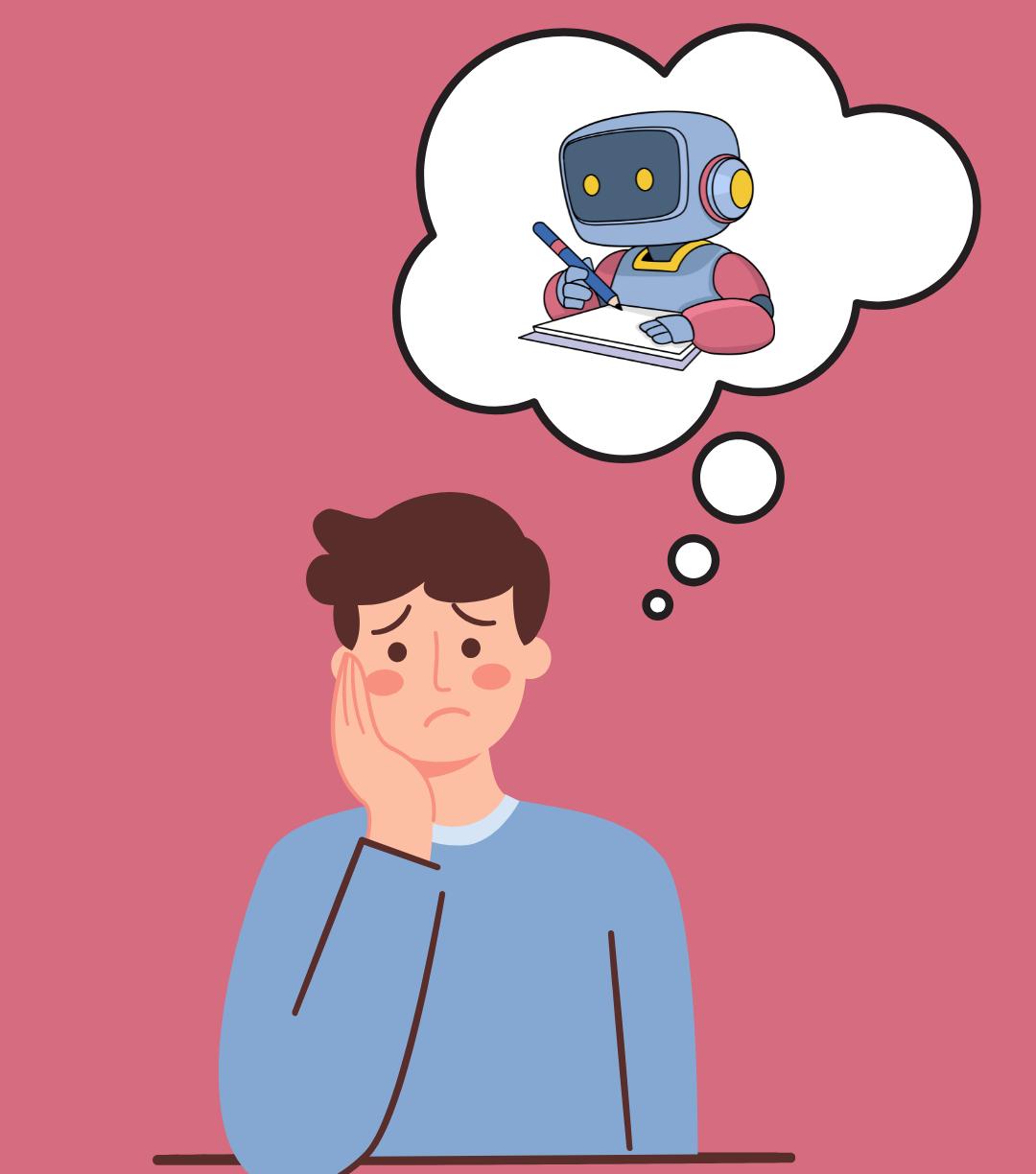
Julia Jensen | Art Director

bama never had a solid footing on the paint, while Duke flexed its depth and discipline and beat Alabama squarely, 85-65, giving them a spot as contenders in the Final Four.
“Duke is obviously a powerhouse team with a great coach,” said Leah Smith, a junior economics major. “I think Duke will come out on top, but I want Florida to win, just because Duke is the favorite.”
Hope Martin Staff Writer
The Wellness and Recreation Center pool has been closed for the entire semester, leaving many students confused about what is happening with the pool and when or if it will reopen.
The pool in previous semesters was open Monday through Friday, on average seven hours per day, with gaps in between for maintenance.
Drew Bruton, the Director of the Wellness and Recreation, sent an email to the student body on Feb. 27.
“As most of you are aware, the indoor swimming pools at the WRC have been temporarily closed due to ongoing operational and maintenance issues,” Bruton said. “Georgia College & State University continues to work with internal and external partners to assess the problems and required repairs. We are considering all options as we assess the best path forward and will share more definitive information with you as soon as it becomes available.”
Allegedly, the conversation of the pool being shut down were in the works, with some students claiming that the decision was discussed during spring break.
“I heard reports from several sources that the SGA and school board were actively discussing and voting on the future of the pool,” said Ben Lowndes, a sophomore computer science major and the creator of a petition to keep the pool open.
The Student Government Association met on Friday, April 4 to debate the future of the pool, with the scuba team and some GCSU admin-
istration each attending the meeting. With rumors going around that the pool might be closing, Lowndes created the petition in an attempt to raise awareness and keep the pool open. Many students opted to not disclose their full name when signing the petition.
“I started the petition because the school has not done a good job of making this huge decision known to the student body as a whole,” Lowndes said. “So this was a way to raise awareness that the school was discussing shutting down such a unique and important facility both on campus and in the local community.”
The pool has been a part of GCSU for over a decade, with many classes and community members using the pool.
Scuba certification used to take place in the WRC indoor pool. The depth of the pool allowed for scuba training in a safe and local facility, but unclear water conditions in the pool have caused problems.
As a result, the scuba teams have been driving to Macon this semester to use a scuba center there instead, according to Scott Stefano, a GCSU scuba instructor. Something that some argued in the SGA meeting is not sustainable long term.
The pool also has a community option, where anyone may use the WRC and the pool for a $50 fee. Some older members of the community use the pool as a way to get physical therapy and exercise in without risk of injury.
“We need an indoor swimming pool for people of all ages with hip, knee, leg, back, body injuries that can recover in an indoor pool,” said Lisa, a student who signed the petition.

Brianna Heard Staff Writer
In recent memory,
With artificial intelligence, or AI, growing smarter each day, there has been a heavy topic on my mind as rumors spread throughout the media. Many individuals believe that AI will replace jobs, especially journalism. As a college student studying journalism, I refuse to believe algo-
rithms could take over this field. Machines may process data, but only people can process emotion, context and truth.
AI is a tool, not a storyteller. It is very efficient in summarizing information and processing large amounts of data, but it lacks the human experience that journalism depends on. Computers can not conduct emotionally charged interviews or capture the elements of a breaking story. All it can do is rewrite a story that already exists.
For decades, journalists have used AI as a tool to turn audio into transcripts, spell check and more. We should focus on how it could enhance journalism rather than replace it.
However, overreliance on AI in the media poses risks.
AI-written articles lack accountability and could spread misinformation. Anyone who has used AI has likely experienced this. It lacks awareness and does not know if it is giving true
information or not. It is programmed to always give a response.
One major limitation of AI is its ability to understand ethics. Journalists are trained to navigate complex ethical issues, such as balancing the public’s right to know with an individual’s right to privacy and depicting newsworthiness. AI might be capable of producing an article about a sensitive issue, but it would fail to grasp the concepts of the potential harm caused by the story.
See AI | Page 9
GCSU students collecting the past
Kate Walker Contributing Writer
This past week, GCSU history students connected with Milledgeville community members at a History Harvest at Allen’s Market as a part of the Collecting the Past project, a three-year federally funded initiative from the National Endowment for the Humanities.
Students who are a part of Stephanie Opperman’s HIST 4010 class, Local History, are researching people and places in Milledgeville that have helped to shape the community, specifically during the time Flannery O’Connor lived in the area.
“The Collecting the Past project is a threeyear federally funded grant from the National Endowment for the Humanities, and we are in our third year of it right now,” Opperman said.
“The goal of the project is to record oral histories and collect community memories related to Milledgeville in the time that Flannery O’Connor was writing most of her stories here, so that would have been in the late 1950s and early 1960s.”
In previous years, Opperman’s course paired students with community members who either knew O’Connor personally or had studied her, turning their interviews into podcasts. This semester’s course focuses on sites in Milledgeville that were significant during O’Connor’s lifetime.
“We know a lot about Flannery O’Connor,” said Jessia McQuain, the programming coordinator for the Flannery O’Connor Institute for the Humanities and interim coordinator of the project. “We’ve got this huge amount of schol-
arship. There’s a society dedicated to her, there’s an institute dedicated to her, there’s a museum dedicated to her but we know that her writing was so informed by the colorful, vibrant life of Milledgeville.”
Each student has selected a location in the Milledgeville area to research and then found
“Our biggest goal is to try to connect the students with the community members and let them do the majority of the interviews as a way to have engagement with community members,” Opperman said.
Eowyn Agullo, a junior history major, chose to deepen her understanding of Milledgeville’s his-
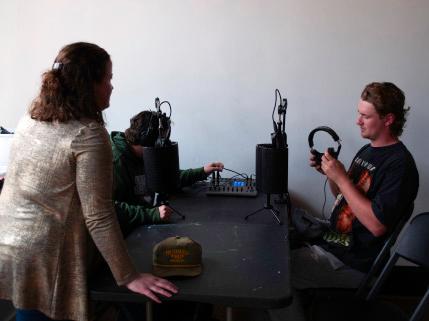
local community members to interview about the history of the site. Topics include a variety of buildings and landmarks including the Sacred Heart Catholic Church, Allen’s Market, Lake Sinclare and Memory Hill Cemetery.
tory while also connecting with its residents.
“I was really excited to not only find the more famous stories but to learn more about personal stories that exist in local history,” Agullo said. Agullo’s research focuses on the Sacred
Catholic Church, where O’Connor, a devout Catholic, attended daily Mass until the end of her life. Though the church has been a part of Milledgeville since 1974, Agullo noticed in her research that nearly every other church in the city has a published book about its history in the Mary Vinson Memorial Library, except for Sacred Heart.
“I think it’s really important to reveal these stories and personal memories because they get into a deeper sense of daily life,” Agullo said. “We can always find estate sales, taxes, and other information, but getting the personal narrative of who really went there and who made an impact on the community is vital, and I think it’s good to share.”
According to Opperman, these oral histories are a valuable resource, one that can be quickly lost if not properly collected and documented.
“With oral histories and especially with community memories, a lot of time if they’re not documented in some way, there’s lost when the person passes away,” Opperman said. “I think everyone has their own unique set of experiences and memories and recollections that are valuable to students, to professors, and to the history and the future of a region.”
Opperman also emphasized that the project is intended to create open-access resources available to the public, allowing anyone to learn more about the history of Milledgeville.
“Whether that’s maps or podcasts or just a database of these recordings, this is something that all of the community members can then access and hopefully use and benefit from,” Opperman said. There will be another History Harvest event on April 12 from 12 p.m. to 4 p.m. at the ArtHealthy Festival on campus.
Brianna Heard Staff Writer
On March 25, the Georgia Senate voted 54-2 to approve a bill banning cell phones and personal electronic devices for students in kindergarten through eighth grade. The bill is now on its way to Governor Brian Kemp’s desk for final approval.If Kemp decides to sign the bill, it will go into effect in July 2026.
If signed into law, Georgia would join at least nine other states that have already restricted or banned cell phone use in schools. This is part of a growing national trend to reduce distractions and improve student focus.
Supporters of the bill believe it will lead to better student performance. They argue that limiting phone use will help students concentrate on their studies and
reduce behavioral issues.
Leo Rose, a high school student, sent in their thoughts on the ban to the New York Times. They felt that their creativity and focus had improved noticeably since attending school without their phone.
“While the banning of cell phones may take some time to fully get used to, it’s a necessity for all schools in order for their students to concentrate and participate more quickly,” Rose said.
Some Georgia school districts have already implemented similar restrictions. Marietta City Schools and DeKalb County Schools report fewer distractions and more engagement in the classroom.
However, critics of the bill raise concerns about its potential drawbacks.
Some parents and stu-
dents worry that they will not be able to contact each other in the case of an emergency.
“The ban could potentially help students pay more attention to the class activities,” said Emily Favre, a junior art major. “However, it may be harmful to families if the student needed to contact family or the police if something were to happen.”
School safety experts argue that phones could be a distraction not only in class, but also during an emergency where students should focus on getting to safety.
“If you have 20 kids in a classroom and they’re texting, calling parents, live streaming — they’re not paying full attention to the directions of adults,” said Ken Trump, president of National School Safe-
ty and Security Services, in an interview with NBC News. “They are not being fully situationally aware of things they may need to quickly do to save their lives.”
On the other hand, some parents argue that smartphones are essential for safety and after-school coordination.
Students have expressed that they may feel unsafe at school without a personal device to contact guardians in case of emergencies.
“If I was a grade school student, I would be uncomfortable with this ban, especially due to the number of school shootings,” Favre said. “If I needed to contact my family and this ban were in place, that wouldn’t be possible.”
The bill reflects a growing trend in states like Florida, Indiana and
California, where similar laws have been enacted. These states have reported mixed results. While some schools see improved student engagement, others struggle with enforcing the rules. Some question how effective enforcement will be. Some schools use pouches to lock up
“I feel like students would find ways to sneak their phones into school,” said Kaleigh Daughtery, a sophomore marketing major. “It might create more distraction because the kids will be focused on hiding their devices.”
As Georgia moves closer to implementing the ban, educators, par-
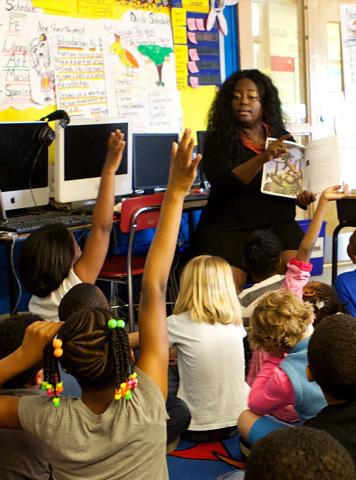
phones or require students to store them in lockers, but the challenge of enforcing such rules consistently remains.
ents and students will have to find the balance between minimizing distractions and maintaining communication.
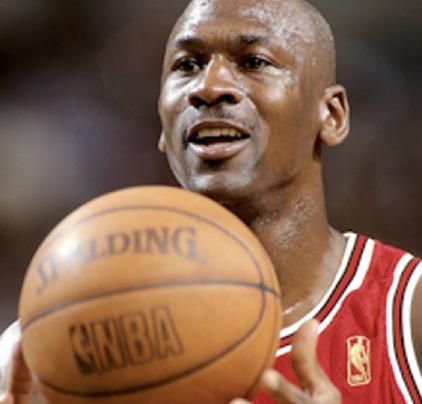
per game during the regular season. Jor-
Thousands of players make it to the National Basketball Association, or NBA, and many want to be the best player in the league.
There is an ongoing debate between who is the greatest of all time: Michael Jordan or Lebron James.
Jordan started his NBA career after being drafted in the first round, third pick overall, for the Chicago Bulls in 1984.
Jordan made his debut in October 1984 and went on to play for 15 seasons.
Jordan played as a shooting guard and small forward, donning the numbers 12, 45 and 23 throughout his career.
He averaged 30.1 points and 6.2 rebounds
dan won Rookie of the Year in 1985 and was a five-time MVP during the years 1988, 1991, 1992, 1996 and 1998.
“The difference between LeBron and Jordan is that LeBron cares about what everyone thinks about him,” said Jackson Flores, a sophomore psychology major.
“Jordan does not care at all, and that’s why he was the greatest of all time, because he had that mindset that like, I don’t care if I’m hated by everyone. That’s why he won six championships.”
Jordan scored 32,292 points in total during his regular seasons, and James scored 41,978 in total.
Jordan has 11 All-
Continued from page 1
In one of the closest games of the Sweet 16, Texas Tech beat out Arkansas with game-winning free throws and tough defense through the second half. The Red Raiders showed incredible grit, staving off a late surge from the Razorbacks.
When Florida met Maryland in the Sweet 16, the Gators controlled the game from start to finish. Their suffocating defense left Maryland without answers, beating them out, 87-71.
In their Elite 8 match, Florida’s backcourt was prominent, leading an aggressive charge past a tough Texas Tech squad. The Gators’ sheer size and composure in the final minutes sealed the deal as they punched their ticket to the Final Four.
Back in the Sweet 16, A defensive battle between Houston and Purdue saw the Cougars just beat Purdue by 2 points in the final seconds. Clutch shot-making and late-game execution proved the difference as the Cougars moved one step closer to another Final Four.
“This game was crazy,” said Brett

38 points in this game.
NBA accolades, and LeBron has 20 altogether.
“It’s MJ,” said Mack Brice, a freshman marketing major. “He has more championships than Lebron and went six for six, winning every championship he was in. He also won Finals MVP all six times, meaning he was the best on the court all 6 times and he had more scoring dominance... winning 10 scoring titles and averaging 30.1 ppg. He has more clutch factor and was just a more mentally tough player; look at the flu game.”
Jordan played game five of the 1997 NBA finals against the Utah Jazz with flu-like symptoms that were later determined to be food poisoning. He scored
He has won four gold medals, and during playoff seasons, he averaged 33.4 points while James averages 28.4 points.
After finishing his career with the Bulls in 1998, Jordan went on to play with the Washington Wizards from 2001 to 2003 before officially retiring.
Lebron James was drafted into the NBA in 2003 as the first-round pick and is currently in his 21st season at 40 years old with no signs of stopping in sight.
James plays as a small forward and started his career with the Cleveland Cavaliers.
While with the Cavaliers, he won Rookie of the Year and All-Rookie First Team in 2004. He even became the most valued player in 2009 and 2010 while with them.
In 2010, he joined
the Miami Heat and played with them for four seasons. He won his first two NBA championships with them and was a finals MVP. He then moved back to the Cavaliers, where he led the team to their first championship win.
“I would say that probably six years ago everybody regarded LeBron as the goat, but since he passed the scoring record and he’s about to break another record I believe,” said Andrew Yawn, a senior criminal justice major. “I think that as far as like when you define a goat, you have to consider longevity, and LeBron is like the pinnacle of that.”
In 2018, James became a member of the Los Angeles Lakers and eventually won MVP, making him a player who was MVP on all
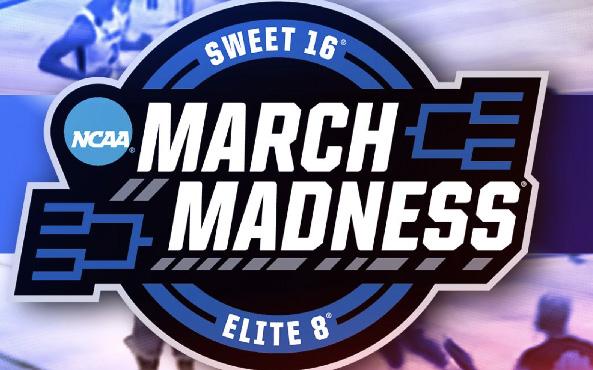
Peterson, a graduate student studying Buissniuss Administration. “The 2-point difference and back-to-back rally was an amazing thing to watch. I really thought Purdue was going to win, but honestly, I think I underestimated Houston as a one-seed.”
A showdown between Tennessee and Kentucky proved an exciting game in the Sweet 16, as the Volunteers put on a defensive clinic, forcing Kentucky into tough shots and controlling the pace. Tennessee looked focused and ready for the big stage as they beat out Kentucky, 78-65.
When Houston met Tennessee
in the Elite 8, the Cougars smothered Tennessee on defense, limiting their scoring options and owning the paint. Houston looked every bit the championship contender, displaying their relentlessness with a 19-point difference to close out this game.
In the final matchups to determine the Final Four, Auburn met Michigan in an explosive match. The Tigers overpowered Michigan with physicality on the paint and strong 3-point shooting. Auburn has proved it belongs in the championship conversation, beating out Michigan 78-65.
Then, Michigan State met Ole Miss,
three teams he played on.
James has had eight game-winning shots in comparison to Jordan, who has had nine in regular seasons.
James became the all-time leading scorer in 2023 and, in doing so, broke Kareem Abdul-Jabbar’s record of 38,387 points. During playoffs, their three-point percentage is neck and neck at 33.2%. Jordan is better percentage-wise with an 82.8% free throw average, while James is sitting at 74.1% per game.
James continues to play and add stats to his name, and many wait to see how much longer he will play. Both have made an impact on the NBA and have had successful business ventures outside of the NBA, but the debate remains on who is truly the greatest of all time.
and an effort by the Spartans kept their title hopes alive. MSU fended off a feisty Ole Miss squad with poise and accurate shots, giving MSU the chance to face Auburn in the Elite 8.
Unfortunately, one more Michigan school would become Tiger food, as Auburn’s balanced attacks and timely turnovers proved too much for the Spartans. With this win, Auburn makes a strong case as a dark horse to win it all in San Antonio.
“I think Florida is definitely going to beat Auburn,” Smith said. “I didn’t pick them, but looking at their roster and their shooting, I think Florida’s going to win. Their rebound game is very good and especially higher up at the men’s level, there is not a lot of urgency to specialize in the intangibles (like rebounding), but Florida does them.”
This past week has decided Final Four standings, with Florida, Duke, Houston and Auburn all contending for the championship. Florida will battle Auburn on Saturday, April 5th, and Duke will play Houston directly afterwards, in what looks to be an extremely high-octane championship.
Emma Jow Staff Writer
GCSU is home to a diverse array of students with unique backgrounds, personalities, and styles. This individuality shines through beautifully in the student population’s wide array of music tastes.
From the Billboard Top 100 to underground hidden gems, GCSU students explore all genres and facets of music.
Sid Hughs, a freshman political science major, said that his current favorite artist is an alternative singer named Ivri, who exists in the “dream-pop” genre. With less than 500,000 monthly listeners on Spotify, Ivri is an underground favorite with a small but dedicated fanbase.
Hughs loves Ivri for the “otherworldly” sound of her music that is unlike anything he has ever heard before. With complex instru-

mentals and rhythms, Ivri transports her listeners to new realms.
Max White, a sophomore English major, also has a propensity for the alternative. He said that his current obsession is the Norwegian electronic pop singer known as AURORA.
As an English major, White enjoys complex lyrics that he can delve deeply into and analyze.
“Her songs are su-
per existential,” White said. “I love being able to use them to explore the existential philosophies I also find in my favorite literature.”
Claiming an all time favorite artist was a tall order for music-obsessed Sarah Peek, a freshman art major, who gave a variety of answers.
“My all-time favorite band would have to be either Big Thief or Led Zeppelin, but recently
I’ve been listening to a lot of Lucy Dacus because she just released her new album,” Peek said.
Big Thief and Dacus both fall into the Indie category, while Led Zeppelin is often considered the epitome of classic rock.
In a stark contrast to Hughs and White’s underground cult-favorites, Anna Lavoy, a sophomore nursing major, shared that the infamous Billy Joel currently dominates her listening habits. Anna explained that she has always preferred older music, as it feels like it is made with love, containing higher quality lyrics and sound.
Nour Nazim, a freshman chemistry major, gave the same answer: Billy Joel. Nour is drawn to this 1970s classic musician not only for his music but also because of his personality.
“Not many people know that Billy Joel was originally a boxer and started music way later in his life,” Nour said.
He added that Joel’s music appeals to him be-
Do we need them?
Zoey Hooper
Contributing Writer
Disney’s live-action remakes have become a source of cultural debate, raising questions on whether they serve as a perpetuating soulless cash crab or an introduction to classic stories compatible with a younger generation of Disney fans.
Disney released the animated princess film “Snow White and the Seven Dwarfs” in 1937 and revolutionized the future of filmmaking. Disney capitalized on the film’s success and throughout the next 88 years animation became a staple of the movie industry.
A touchstone for the success of animated films is Disney’s “Renaissance Era” spanning from 1989 to 1999, which became a period of financial and critical acclaim that featured some of the studio’s most iconic films. Titles such as “The Lion King,” “Beauty and the
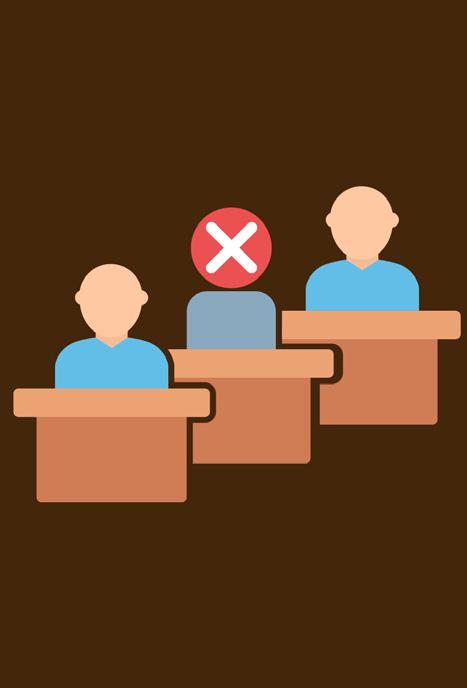
For some students, opting out of class is a one-time thing, while for others, it can evolve into a pattern. GCSU students sometimes find themselves falling into the trap of skipping classes and not being able to break free from the cycle. Whether motivated by unimportance, peer pressure or a short expression of free will, skipping often leads to unintended consequenc-
Beast” and “The Little Mermaid” were some of the many achievements during the era.
Nearly 20 years later Disney announced that many of these Renaissance Era films would be remade into live-action adaptations. Previous to the re-production of live-action films, the only reimagined animated classics were “The Jungle Book” (1994) and “101 Dalmatians” (1996).
Tim Burton’s 2010 film, “Alice in Wonderland,” catapulted the trend of live-action remakes. Despite the film being received poorly by critics and a 50% Rotten Tomatoes score, “Alice in Wonderland” earned more than $1 billion at the box office, making it a smash hit.
Disney recognized the potential financial success of revitalizing old properties and has released 18 live-action remakes since 2010. These movies have received significant criticism from Disney fans
One of the most prominent criticisms from viewers emphasizes the lack of creativity of recent remakes. By capitalizing on nostalgia, some audiences view Disney’s live-action renditions as cash grabs.
“I think that the newer Disney remakes are missing innovation,” said Madi George, a freshman mass communication major. “Live-action takes away the magic of animation.”
Fans who grew up with Disney may feel as though the creativity had diminished in their modern films. Disney’s business strategy was thought by some to be emphasizing nostalgic content rather than prioritizing the development of original stories.
The sentimentality audiences felt for the 90s films guaranteed Disney an audience for their reimagined counterparts. Despite nostalgic elements with audiences, the median Rotten Tomatoes audience score for all 23 Disney live-action remakes is 53%,
which suggests many have been ill-received.
“I don’t like them; I think it’s kind of pointless in a way and takes away from the originality of the actual animated movies everyone knows from childhood,” said Josef Lopez, a freshman MIS major. “I also disagree with how they switch up certain aspects of the plot to appeal to progressive audiences.”
Four years after the premiere of “Alice in Wonderland” Disney released “Maleficent,” a pseudo remake of “Sleeping Beauty,” followed over the next two years by live-action adaptations of “Cinderella,” “The Jungle Book” and “Pete’s Dragon.” A common characteristic of the initial live action rendition films is their attempt to update classic characters to please modern audiences. Changes made were intended to enhance the story and provide a more in depth experience for the viewers.
Some viewers found the changes to be un-
cause it suits every mood.
Some songs are exciting and upbeat, which can give him energy before races as a cross-country athlete, while other songs are slow and soothing, allowing him to relax after difficult days.
One of the more popular modern-day artists who seemed to be a favorite was SZA. Lloyd Addington, a freshman art major, claimed SZA as his all-time favorite.
SZA is a grammy award winning R&B artist who recently performed as a feature at Kendrick Lamar’s Super Bowl halftime show.
SZA hosts a staggering 86.7 million monthly listeners on her spotify, cementing her place as one of the most famous artists amongst GCSU’s student’s demographic.
“Her songs have real meaning and purpose,” Addington said. “Her songs are so easy to connect to.”
SZA’s music focuses on the broad emotional spectrum of love, heartbreak and finding oneself through hard-
ships, which are messages that resonate deeply with many young adults. Continuing the love of the R&B genre, Ashtyn Ekendahl’s, a freshman psychology major, current comfort artist is Daniel Caesar. Caesar is not quite as popular as SZA, but he does have 32.8 million monthly listeners on Spotify, making him far from underground.
Ekendahl loves Caesar for his music’s “angelic sound” and his wide musical range. She also added that his songs have featured great artists, including other superpowers of the genre like H.E.R. and Kali Uchis.
There are few better ways to get to know someone than through their favorite music. In learning what GCSU students are listening to, it becomes evident that the student body is a melting pot of diverse individuals with personal tastes, making it a wonderful place to explore and call home.

necessary and even believed they undermined the initial message of the original films.
In “The Jungle Book,” Mowgli chooses to remain in the jungle rather than rejoin his human family. This decision contradicts the original story’s message, where Mowgli’s departure from the jungle symbolized his transition into adulthood and acceptance of responsibility.
Despite the backlash over the recent revisions to their films, many au-
diences have an appreciation for Disney’s efforts in updating certain themes to be more inclusive and representative of modern audiences.
“I went to see ‘The Little Mermaid’ in the theater,” said Jayla Beasley, a freshman mass communication major. “There was a little girl who sat in front of us during the movie, and I remember her saying ‘she looks just like me’ when she saw Ariel. It made me tear up.”
Amelia McEwen Staff Writer
es that can negatively impact a student’s academic journey. Much like a gateway drug, the first skipped class opens the door to habits that can become harder to reverse. Some students may not even realize when they have crossed the threshold and make the effort to step back if the cycle has already become too ingrained.
“Once you skip one class, it’s easier to justify skipping another,” said Anna Schofil, a sophomore nursing major. “I have done that a few times and realized that it is easy to fall back into that trap. It’s like a slippery slope.”
Students may find
themselves skipping one class one week and then skipping three the next. There are many factors that play into a student’s reason to skip, with perceived unimportance being one of the top reasons.
“Honestly, it’s kind of thrilling,” said Ramsey Riggins, a sophomore business administration major. “Skipping one class does make skipping another feel easier. But I also feel like I’m not falling too far behind. My grades are still looking pretty good.”
Riggins mentioned that some of the GCSU students can relate to a mindset that skipping will not set them back and is essentially harmless in nature.
Research suggests that missing class does
have a negative effect on a student’s grades.
A study from Stanford University found that students who miss more than 10% of their classes are significantly more likely to experience declines in grades and overall academic success.
“For me, skipping class is not an option,” said Sierra Piland, a freshman political science major. “I think each lecture is just as important as the last. Even if my friends try to convince me, I remind myself that everything connects in the end.”
Piland views skipping in a different light, seeing it as a damage to academic success. She explains that even if her friends are trying to tempt her, she recognizes where her priorities are.
Ultimately, skipping seems harmless at first, but its spiraling effects can lead to diminishing grades and a lack of motivation.
For others, like Riggins, there seems to be no negative outcome from it. Many believe that there are truly no consequences that stem from missing classes, but there is the possibility that the process of slipping grades has not taken effect yet. Research suggests that, like any habit, skipping class can lead to something much larger than intended.
A study conducted by researchers at UC Santa Cruz found that skipping class can lead to a habitual pattern. Students who missed a frequent amount of classes noticed
their exam scores declining over the school year. Many students joke about the parallel between skipping classes as a gateway drug. One or two missed classes seem like no big deal. As a person continues to get away with this, thinking they are not harming their academic performance, they begin to do it more and more. Over time, those students may find themselves in a predicament where they are underprepared for their assignments and exams.
Skipping class may seem like a harmless act of independence, but its potential to spiral into a habit serves as a reminder that small choices can build up into larger consequences.
Continued from page 1
The responsibility of ensuring that content is ethical, fair and respectful will always remain in the hands of human journalists.
If we allow AI to take over journalism, we risk losing the soul of storytelling — the unique voice and perspective that only humans can provide. News would become a collection of recycled facts. The world does not need automated content, it requires journalists who are willing and able to challenge ideas and capture raw content first-hand.
Furthermore, artificial intelligence only exists because
of human intelligence. It was created and programmed by people. While it can replicate patterns and language, AI does not have original thoughts and emotions. It operates within the limits that humans have given and programmed.
Would AI have been able to expose the Watergate scandal? How about the emotional stories of war heroes? Could it capture the struggles of everyday people in a way that resonates on a deeply human level? No, it could not because AI lacks passion and lived experiences that make journalism great.
Some may argue that AI can generate news stories at lightning speed, allowing news outlets to cover more
stories with fewer journalists. This would save money and create more content. While speed is important, journalism requires careful thought and accuracy. The pressure to publish stories quickly could lead to a decline in the quality of reporting, especially if AI-generated articles aren’t fact-checked.
When we fear AI taking over, we forget that it is only as powerful as we allow it to be. We are the ones shaping technology, deciding its role in our industries and our lives.
A 2024 analysis published in Nature Human Behaviour reviewed 51 studies and found that AI systems are most effective when working alongside humans — not re-
placing them. The research shows that human interpretation and guidance are crucial for successful outcomes.
I think more people should focus on how amazing human intelligence is to have created something as advanced as AI. Its existence proves our limitless potential.
In the 1920s, when television was first introduced, many feared it would mark the end of newspapers and magazines. Yet, these traditional forms of media not only survived but have flourished. They continue to grow, mainly on digital platforms in the modern day. This is a similar phenomenon.
While there are concerns about AI’s impact on journalism, it’s more likely
Molly Goff Opinion Editor
I have lived in Georgia my whole life. For years, I wanted to move out of state when I got older more than anyone, due to how stuck I felt in my life.
I realized that it wasn’t Georgia itself, but my own feelings on my life trajectory. Without Georgia, I would never have found GCSU, and I even go as far as to have never found “The Colonnade!”
GCSU and “The Colonnade” have been the biggest blessings in my life. My biggest mission is for YOU, the reader, to see why I love Georgia and why you can too.
My favorite point to make about Georgia is how it is unlike any other state. From the weather to all of the activities to the atmosphere that is unmatched by any of the other 49 states.
“My favorite part of Georgia is that you get almost all of the scenery, whether it’s mountains, lakes, or beaches,” said sophomore marketing major Dorie McKown. “It offers it all! Definitely go to Driftwood Beach. It’s a sight to see. Georgia is great because there are so many options regarding activities. I also like that it doesn’t get super cold in the winters.”
Georgia not only has mountains, beaches and the city, but beautiful weather that makes residents never want to leave for breaks, vacations or relaxation. It is all-encompassing in this growing southern state.
“Georgia has a little bit of everything: bustling city life in Atlanta, beautiful mountains in the north and gorgeous beaches along the coast,” said freshman nursing major Treasure Goodson. “Plus, the food is top-tier (hello, peach cobbler and Southern barbecue).”
Keeping the theme of having all you would want and more in a state, Georgia has so many memorable attractions that keep tourists and residents coming back for more each year.
“As for activities, there is not one in specific that is the best, but the aquarium is really cool and the mountains to go watch the sunset,” said freshman forensic chemistry major Ansley Vom Saal. “The main spots to hit are The World Of Coke and The Georgia Aquarium.”
Each attraction has its unique charm as
well as being an iconic staple of the state.
“I’d recommend exploring Atlanta, visiting the Georgia Aquarium, the BeltLine or catching a game at Truist Park,” Goodson said. “But if you prefer nature, a trip to Amicalola Falls or a drive through the Blue Ridge Mountains is a must.”
Nature is emphasized in Georgia due to its ideal position in America. We get the four seasons, but the beauty is that we have nice weather where only a few parts of the year could get snow, but mainly sunshine and blue skies!
This is perfect for anyone who wants to experience all of the wonderful weather without staying in intense conditions of heat or heavy snowfall.
Georgia residents can stay in the state year-round, making the state dependable and having resident loyalty to fully enjoy the state instead of constant travel.
In my life, my relatives from other states visit my family in Georgia compared to any other state they are living in.
I personally appreciate the political landscape as well. Yes, some parts of Georgia are traditional Southern, but in the heart of the city, other views are flourished and encouraged.
People from all walks of life can thrive in Georgia. We are one of the more diverse states, extending more than just racially, but in religion, socioeconomic status and worldviews as well.
Branching further to pop culture, Atlanta has become a HUGE hub for music and arts! Film has had a surge in Georgia over the past few years. Georgia has even been deemed “the Hollywood of the South!”
In addition, rappers have frequently included lyrics about Georgia areas, further making the state a motif for pop culture, serving as a backup state when others can’t fulfill all the cool things Georgia encompasses.
My definition for a “backup” state is when largely populated and popular states like New York or California have their own struggles with weather, politics or overpopulation, and growing states like Georgia get to have their moment to shine.
This is a chance for Georgia to have its state fame and positively use the opportunity to have the state flourish in all aspects: socioeconomically, pop cul-
Molly Goff Opinion Editor
I recently took a test on Mary Shelley’s novel, Frankenstein. One of the questions was, “Who was more of the villain in the story, Victor Frankenstein or the Creature?”
In the story, you would believe that the Creature is the true villain, with his monster-like appearance and killing capabilities. However, the real villain is Victor, who abandons his creation and lets him roam free to start utter destruction.
This test question got me thinking — why do we always empathize with the normal, human character in the media that is the “good guy?”
As an audience, we view protagonists who are “good” continuously in this state because we aren’t always “good” ourselves. We make mistakes and grow from them, which is a common plot in a coming-of-age good-guy story.
But does this mean we should automatically dismiss villains as purely evil? In many cases, they are simply characters shaped by difficult circumstances. Like protagonists, they undergo struggles that define them. If we take the time to under-
stand their motivations, we might see that their actions — while extreme — aren’t always entirely unjustified.
We are all humans, and to be truly human, especially in stories and retellings in shows, books and movies, we all go through trials and tribulations that make us more complex characters while showing growth at the end of the story. Audiences love a story about a journey and without a journey to a goal, including self-discovery, how can we grow as an audience to love them?
Without adversity, there’s no transformation. Audiences love a journey, especially when it leads to self-discovery. Without that growth, how can we connect with a character?
“I feel like following a good person makes the story better,” said Emma Heaslip, a freshman psychology major.
“For example, when reading the good guy’s pov [point of view], you get to see the hardships, the challenges and the victory, but when following a villain, it is just a bunch of ‘oooh my evil plan.’ It just doesn’t have a lot of excitement.”
Along with the idea that we seek the good in people in a story and that characters can fix or mend a problem, it is something we mirror in our lives as well. I don’t think there is a single person I know who wants to
that the industry will adapt and evolve, finding new ways to integrate AI without losing its human touch. Ultimately, AI is a tool - one that still requires human oversight, direction and heart. As long as journalists continue to adapt, the profession will endure and grow alongside technology. Moving forward, I believe it will grow as a partner alongside journalists. It can complete repetitive tasks such as organizing data sets or transcribing interviews, which will allow journalists to focus more on the tedious tasks. Journalism will survive as long as journalists evolve alongside AI.

turally and appreciating the state in its rich history.
“Georgia has a rich history, diverse culture, and strong Southern hospitality,” Goodson said. “It also plays a huge role in music, film, and sports. Plus, the weather is pretty great most of the year!”
Georgia is more than just a place on the map — it’s a state that embodies diversity, culture and opportunity. Whether it’s the natural beauty, the thriving city life, or deep-rooted history, there’s something for everyone to appreciate.
For me, Georgia has transformed from a place I once felt stuck in to a home I cherish. The experiences I’ve had, the people I’ve met and the opportunities I’ve embraced have shaped my love for this state.
From the mountains to the coast, the rich traditions to the evolving culture, Georgia continues to be a state where people can grow, explore and thrive.
I’ll let y’all in on a little secret: my true favorite part of Georgia is that it led me to GCSU. GCSU has been my lifeline for making lifetime friends, finding my true passions and figuring out who I want to be going forward.
No matter where life takes me, I know that Georgia will always be a part of who I am.

do worse than they are doing currently; we are always progressing.
There is another argument for loving the “good guy”, and that is: what love is given to the other characters in a story? What about the side characters, the love interests or the villains?
Are side characters actually side characters in their own stories? Do love interests get to build complexities more than just falling in love with the main character? Do villains ever get a chance to be understood?
“I feel being a side character would be fun because you get to experience the story without the expectations or pressure the main character goes through daily,” said Annalead Wilson, a sophomore nursing major.
The way we perceive characters in fiction shapes how we interpret people in real life. We often simplify individuals into heroes and villains
when, in reality, everyone has their own struggles, goals, and perspectives.
While we often root for the protagonist, every character in a story carries depth, complexity and motivations worth exploring. The way we view heroes and villains shapes our understanding of morality, growth and even our own lives.
The idea of the “good guy” may be comforting, but it’s worth asking — what happens when we step into the shoes of the villain, the side character or even the overlooked love interest?
Stories become richer when we see beyond black-and-white roles and acknowledge the shades of gray in between.
Ultimately, stories reflect life, and in life, no one is purely good or evil. By broadening our perspectives, we might just find more meaning in the characters — and people — we once dismissed.
